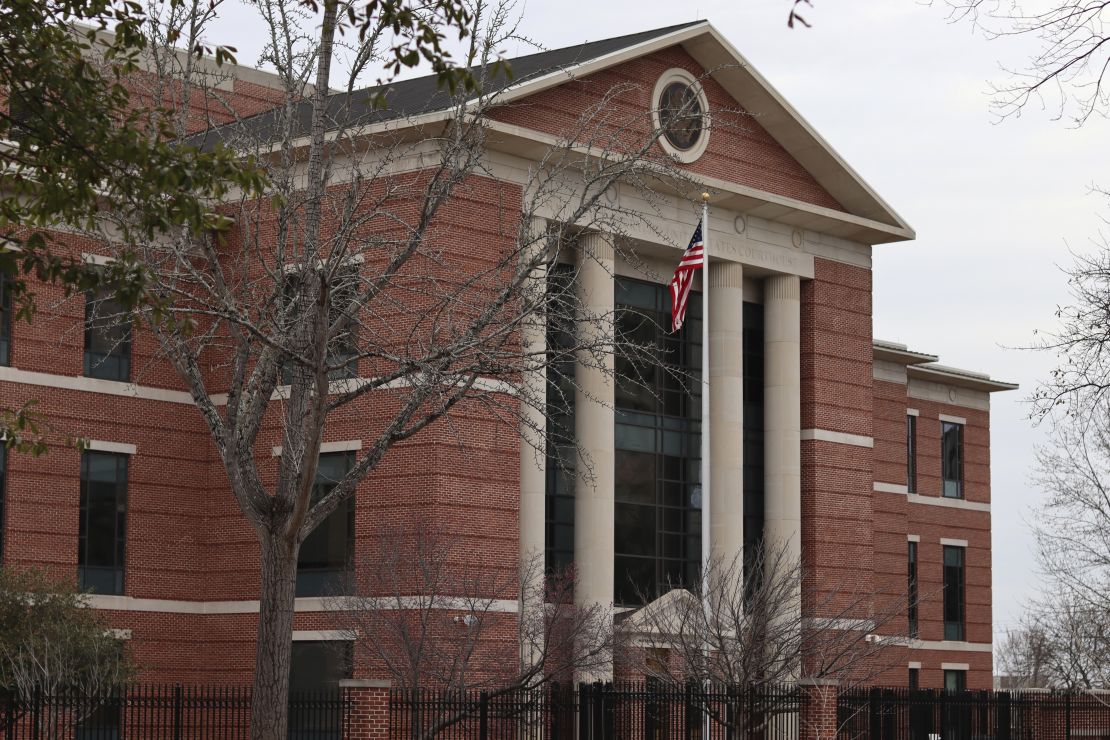A South Carolina man was found guilty of a federal hate crime in connection with the 2019 killing of Black transgender woman Dime Doe, in a landmark verdict prosecutors say is the first of its kind.
“This case is historic; this defendant is the first to be found guilty by trial verdict for a hate crime motivated by gender identity under the Matthew Shepard and James Byrd Jr. Hate Crimes Prevention Act,” Assistant Attorney General Kristen Clarke, with the US Justice Department’s Civil Rights Division, said in a statement Saturday.
“We want the Black trans community to know that you are seen and heard, that we stand with the LGBTQI+ community, and that we will use every tool available to seek justice for victims and their families,” Clarke said.
Daqua Lameek Ritter was found guilty of all charges stemming from the killing, including one hate crime count, one federal firearms count and one obstruction count, the Justice Department said in a news release.
During the four-day trial, federal prosecutors alleged Ritter was upset there were rumors out in the community about his sexual relationship with Doe, according to the release.
On August 4, 2019, he lured her to a remote area in Allendale – which is roughly 70 miles southwest of Columbia – and shot her in the head three times, the Justice Department said.
“At trial, the government proved beyond a reasonable doubt that Ritter murdered Doe because of her gender identity,” the department said.
He then burned the clothes he was wearing, got rid of the weapon and repeatedly lied to authorities, prosecutors said.
“The jury’s verdict sends a clear message: Black trans lives matter, bias-motivated violence will not be tolerated, and perpetrators of hate crimes will be prosecuted to the fullest extent of the law,” Clarke said in her statement.
Ritter is facing a sentence of up to life in prison, the Justice Department said. A hearing for his sentencing has not yet been scheduled.
CNN has reached out to an attorney of Ritter for comment. One of his defense attorneys, Lindsey Vann, argued in court there were inconsistencies in the prosecution’s case, pointing to witnesses who had changed their statements about what they knew, according to CNN affiliate WIS.

The Matthew Shepard and James Byrd Jr. Hate Crimes Prevention Act was passed in 2009 after Shepard, a gay student in Wyoming, and Byrd, a Black father of three in Texas, were murdered in 1998. The act expanded the federal definition of hate crimes to include gender, disability, gender identity and sexual orientation.
Since its passing, the law became a “valuable new tool” in efforts to charge defendants with federal hate crime offenses, the Justice Department has said. Within the first 10 years since the act was signed into law, the department said it had used the act to secure more more than 60 convictions.
In 2017, 29-year-old Joshua Brandon Vallum was sentenced to 49 years in prison for the killing of transgender woman Mercedes Williamson in Mississippi after he pleaded guilty to a federal hate crime. In his guilty plea, Vallum acknowledged he would not have killed Williamson if she was not transgender.
Vallum’s case was the first to be prosecuted under the act where the victim was targeted because of their gender identity, prosecutors said at the time.
And Ritter’s prosecution was the first case to go to trial under the act for violence under a transgender person, the Justice Department said.
Last week’s historic verdict comes amid ongoing violence, rhetoric and legislation targeting the transgender community across the United States.
“Acts of violence against LGBTQI+ people, including transgender women of color like Dime Doe, are on the rise and have no place in our society,” Acting Associate Attorney General Benjamin C. Mizer said in a statement. “No one should have to live in fear of deadly violence because of who they are.”
At least 32 transgender and gender-expansive people were killed last year – half of whom were Black transgender women, and more than 80% of whom were victims of color, according to the Human Rights Campaign.
And much of the fatal violence against transgender and gender-expansive people occurs in the South, according to recently released data from the Everytown for Gun Safety Support Fund, a branch of gun violence prevention organization Everytown for Gun Safety.




